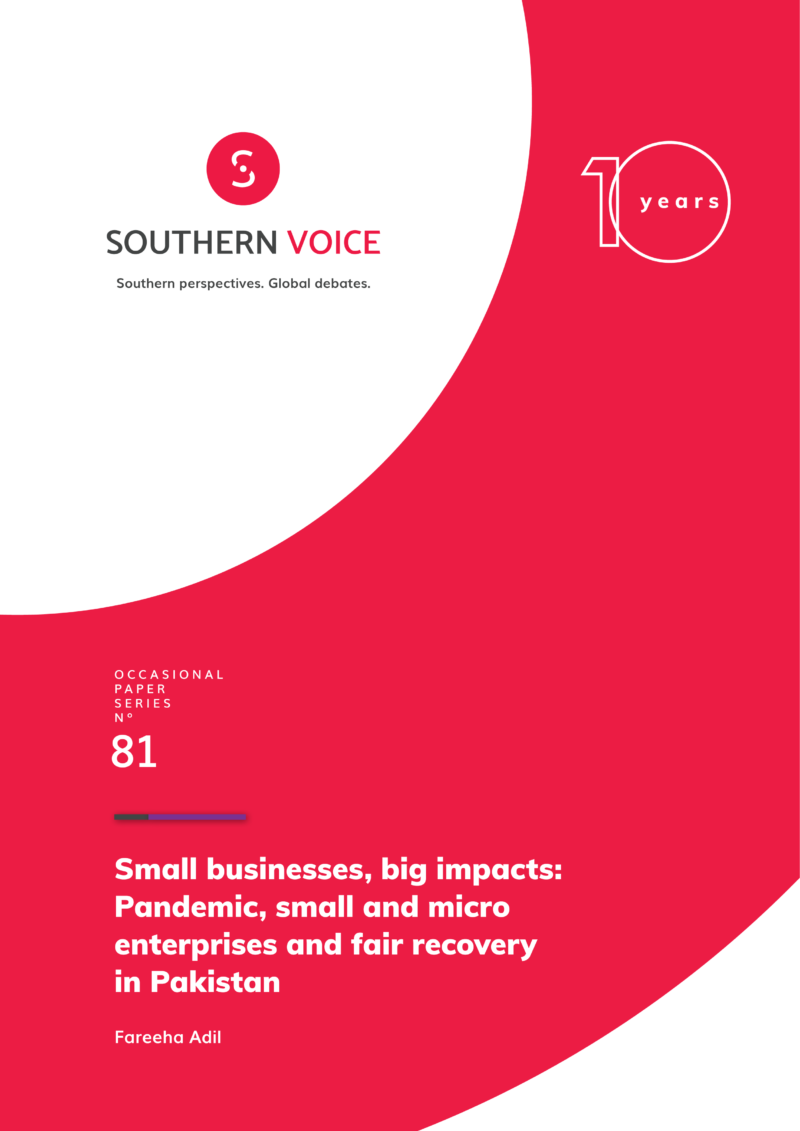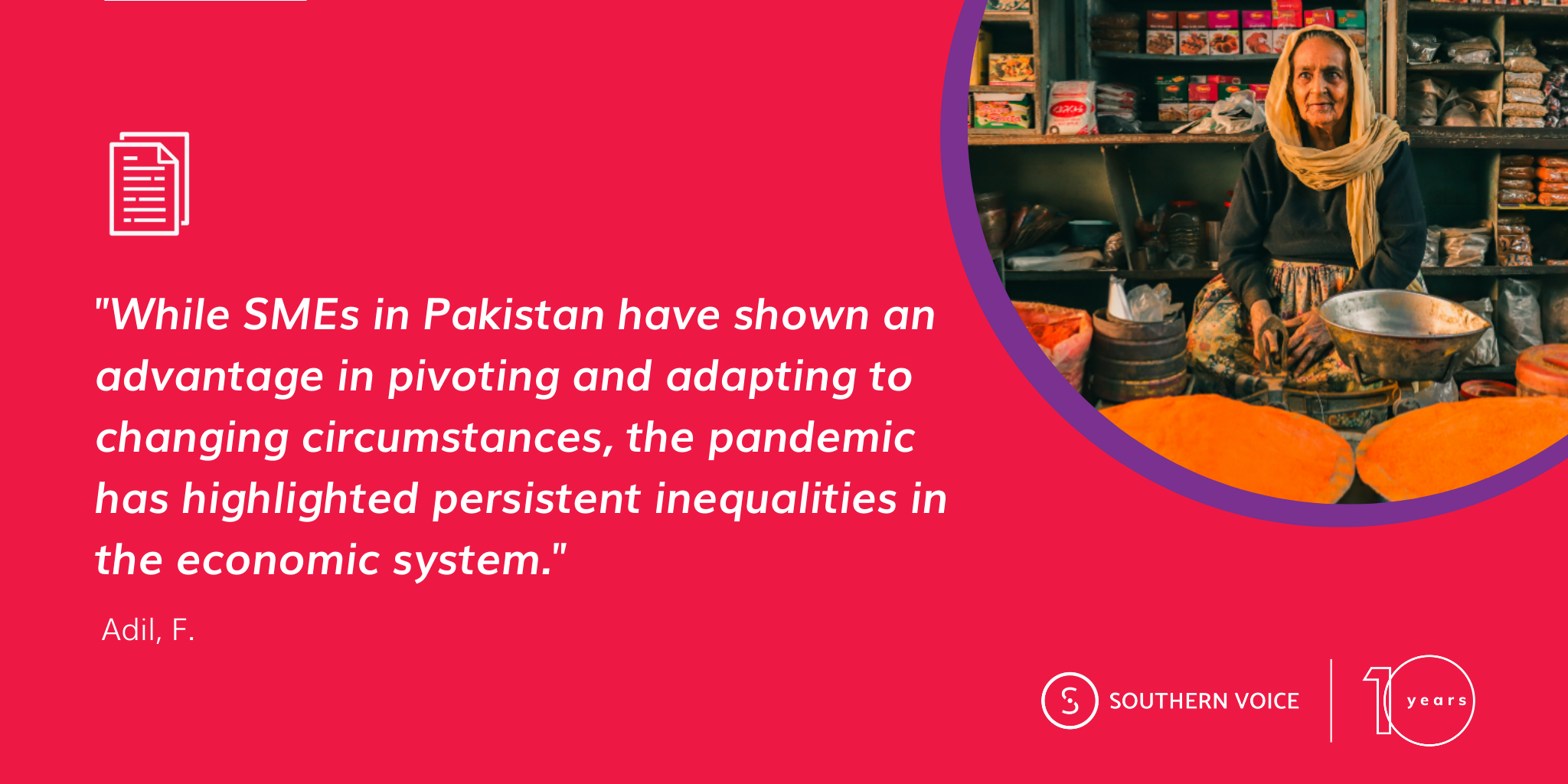Entrepreneurs faced great challenges during the pandemic, demonstrating remarkable resilience in the face of adversity.

The COVID-19 pandemic and the subsequent policy measures in response had a significant impact on small and micro enterprises in Pakistan, exacerbating existing challenges and creating new inequalities for owners and workers of these enterprises. This study aims to explore the impact of the pandemic on small and micro enterprises in Pakistan. In particular, it looks at their financial health, the adverse effects on workers, and the coping strategies of owners and employees. The study highlights the urgent need for the Pakistani government to take action and implement measures to ensure the sustainability of small and micro enterprises in a post-COVID world, in alignment with SDG targets 1, 5, 8, and 10.
To collect data, we used a mix of qualitative and quantitative research methods. It included survey instruments, interviews with key informants, and focus group discussions with small and micro enterprise owners, workers, and industry experts . Structural Equation Modelling (SEM) was utilised to measure the impact of COVID-19 on enterprises and workers. The Binary Logit estimation technique was employed to measure the impact of the pandemic on small-scale enterprises, while the multinomial technique was used to measure the impact of the pandemic on small and micro enterprise owners. The findings suggest that the lockdowns resulted in decreased production activities, affecting both demand and supply, which in turn created a notable effect on the financial health of small and micro enterprises. It led to significant inequalities between and within these enterprises and the workers therein, thus highlighting the need for urgent policy action to address these issues.


